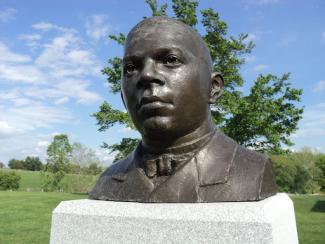
When you say the name Booker T. Washington, you will get a lot of different reactions. Some saw him as inspiring—but others saw him as a race traitor too comfortable with segregation.
What was the truth?
Washington did not know where he was born or who his white father was. Once free from enslavement, he took on the name Booker Washington. With this new name, he catapulted into a career in education. From a plantation, he rose to become a founder of Tuskegee, a Black University.
Under Washington’s leadership, Tuskegee became one of the country’s leading schools. He built it out of nothing. But here was the issue: he did it by assuring white people that nothing within the academic program would threaten white supremacy or white economic dominance.
He taught Black students to accept their subordination to whites until economic and cultural milestones were met. At an exposition in Atlanta, he argued that segregation was fine, just as long as our people were afforded financial and educational opportunities.
Did Washington truly believe that was best for Black people? Was it a facade to keep whites unaware of what was happening so he could build power?
It’s always tricky to navigate in an anti-Black system. We should only be grateful that we can be so unapologetic in our fight for Black liberation now.